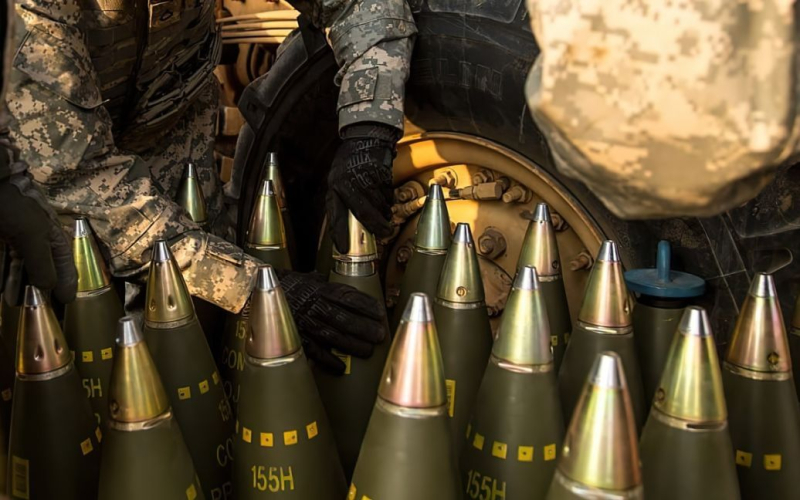
European manufacturers can produce almost half as many shells as EU officials claim.
The EU does not adequately assess its ability to produce artillery 155 mm ammunition, which is very necessary at the front in Ukraine. This is one of the reasons why delivery times and volumes are violated.
Radio Liberty reported on the results of the journalistic investigation of Schemes.
Journalists have found that European manufacturers can produce almost half as many shells as EU officials claim. This is precisely evidenced by the fact that as of June 2024, Ukraine received from Europe just over 500 thousand shells instead of the promised million, also with a significant delay in delivery time.
An association of investigative journalists, which included representatives of the Schemes project and a number of Western media, found out why problems arose in Europe with increasing ammunition production capacity.
Anonymous sources of journalists among representatives of weapons manufacturing companies said that there is a global shortage of gunpowder and explosives in the world. In addition, Western governments are trying to avoid signing long-term contracts with weapons manufacturers, which is why the military-industrial complex lacks funding.
At the same time, unnamed European officials blamed the very structure of the European Union – bureaucratic and clumsy – for delays in the supply of artillery shells to Ukraine.
The third reason for the violation of promises to Ukraine, sources named the inadequacy of the European Union's assessment of its production capacity.
Investigators were able to review an internal report from German arms manufacturer Rheinmetall dated January of this year. The document notes that the concern's production capacity is 350 thousand shells per year, and the rest of the leading European manufacturers are capable of producing another 200 thousand ammunition within a year. Thus, the total annual production capacity of ammunition in Europe is 550 thousand artillery shells of 155 mm caliber. This estimate contradicts the European Commission's statement that Europe had increased its production capacity to one million rounds per year by January 2024.
In response to journalists' inquiries about the differences in estimates, Representatives of the European Commission noted that their statements about the production of ammunition are “based on facts” and “take into account current investments” in enterprises of the military-industrial complex.
In addition to the broken EU promise for a million shells, the Czech initiative, which in February 2024 envisaged the purchase of 800 thousand artillery shells for Ukraine, also failed to be implemented. According to Western sources, of the 15 countries that joined the Czech initiative, as of June, only six of them had transferred funds for the purchase of ammunition. The remaining nine still promise to do so.
Recall that the demand for artillery shells has increased sharply since Russia's invasion of Ukraine in February 2022. Western supplies of artillery shells, stalled by months of political wrangling in Washington, have finally begun to reach Ukrainian units on the front lines.
Related topics:
More news

